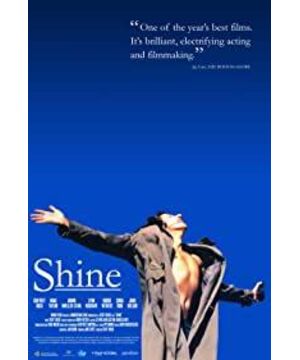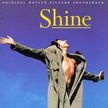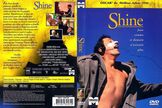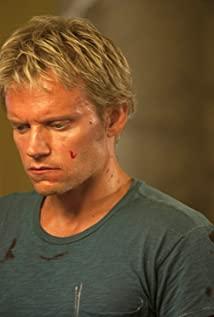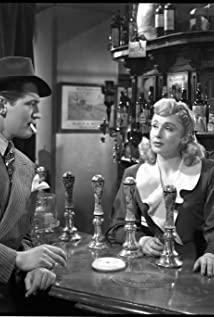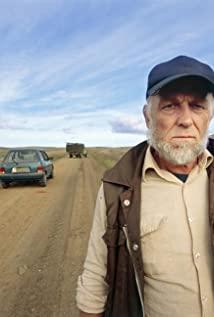- 1900 said that limited keys allow me to play unlimited movements.
88 keys, each of which is an ancient and mysterious charm, we worship it with all our souls, rub it with our pious fingers, and groan of our own life the moment we leave.
Music is like the sea, it can be full of blue waves, or it can be stormy. It can be intoxicating, and it can also devour people. People are like fish, breathing freely in the sea of music.
Life is a gorgeous and grand gamble, and we can only look forward to the future without predicting it. We struggle in life, and from birth, we take risks in this gamble. The fear of his father is the shadow of David's life, and the thirst for freedom is his life's struggle. When he was a child, his resistance to his father was to sneak up and down on the road after hiding from his father's tall and majestic back. Play a game of hopscotch.
At that time, when he was young, he did not understand the extremely bold and brave military character in Chopin's Polonaise in A major, and did not understand that the whole piece must be played at a strict tempo. In fact, this is the most gorgeous and brilliant piece written by Chopin. One of the Polonaises. He just hit the 88 black and white keys hard, hard, hard, trying hard to catch the agitation of the rhythm, the heavy piano was pushed by the young him to start sliding, and the swaying little feet simply kicked the heel A piano bench that doesn't play to the rhythm. Indistinctly, his fragile and sensitive soul touches the unbridled freedom of the music.
That's freedom, completely free from the freedom that was shrouded in his father's gaze!
That morning, the sound of freedom suddenly came out on the radio - Rachmaninov's "Piano Concerto No. 3".
David was still a child, and he didn't know the perils of Rachmaninoff's Third Piano Concerto - First Movement No. 1
The theme is warm, beautiful, singing melody, that is only a brief and illusory calm before the storm; exile, Rachmaninoff - the exiled musician uses the concerto to seek return and freedom! How could David understand—that is the nostalgia for his hometown, the shepherd flute on the Russian steppe, the tranquility in the summer countryside, the rushing ice tears in the mighty Volga River, the red blood droplets in the white snow of Siberia, It was the Russian people who were struggling with hunger and cold, and the beautiful Ivanovka manor that had been destroyed by artillery fire—the young David was deeply fascinated. Because his small, imprisoned life yearns for freedom so much, the first movement: that is the freedom of the clouds and the water. And fate has pushed him to the quagmire step by step.
Sinking, struggling, failing - breaking out of a cocoon into a butterfly. The price is eternal wandering, hometown, only in a dream - Rachmaninoff, finally connected with you with life and soul! But .
_
Scream! Howl! Fly! Fly! Fly! See it? The ultimate is freedom!
Extremely fast allegro, cadenza, glissando, chords, fast allegro... The piano and the strings unfold together. There was a fierce battle. In the dark and ferocious march of the brass instruments, the theme of excitement and victory appeared, and thunderous applause broke out. David"; Huffgot fell to the ground, his big eyes passing through the people. , staring blankly at an unknown space -- is freedom the loss of one's self?
What about freedom, where is the freedom that Rachmaninoff calls for? David is completely broken - that is not freedom, but the desire for freedom and can't get it! Rachmaninoff's ultimate turned out to be the complete delivery of the soul!
More than ten years later, David Huffgot left the piano, left the music, and was admitted to a mental hospital.
On a rainy night, David's eyes met Rachmaninoff again, and this time, No longer through the piano, but pictures on the floor - freedom! The pianist shouted again.
Rushed into a small hotel and played Rimsky on the piano; Korsakov's "Flying Bumblebee". Flying, flying. Bumblebee flying. Biting all the darkness in his own unique world, breaking through the shackles again, Take off again.
However, the real redemption comes from the distant Baroque, Vivaldi's sympathetic "Lord of Glory". When David leaps naked under the blue sky, Vivaldi's music is coming out of the headphones , a female chant adapted from Vivaldi's motet "The World Needs True Peace". Holy, compassionate, empty and free!
Under the blue sky, a naked man with headphones and a brown-yellow trench coat stretched out his arms. Young, golden-brown skin is dazzling in the sun, like a big bird breaking free from its shackles is ready to fly, rushing to the sky of freedom!
Music can destroy a person!
Music can save a person!
David and Gillian When we leave our father's cemetery, the wanderings of eternity can return, and the music exchanged for human souls can bring us back!
"Let go of yourself, music is not living in obedience and slavery, this wood is not yours life. "Listen to the ants playing on your shoes, and enthusiasm will not destroy your freedom
.
Born into a poor Polish immigrant family in Australia in 1947, David Huffgott became the youngest contestant in Australia's "National Instrumental and Vocal Music Competition" at the age of 12, and later won six awards in this competition. Master Isaac"; Stern once admired him greatly and invited him to study in the United States. But his powerful father prevented him from going abroad because he was "unwilling to destroy the happiness of the family". Five years later he disobeyed his father and went to the Royal Academy of Music, where he studied with Cyril Smith. In 1970, after a performance of "La Three", David had a nervous breakdown. For the next ten years, he spent a long period of treatment in In 1984, David returned to the stage. In 1996, the biographical film "Shining Style" was released. "La San" is recognized as the most difficult piano work in the world. The light splendor, dense polyphonic texture, brisk staccato and a lot of magnificent chords woven into the works make many pianists shy away from "La San". Not only that, "La San" also Pianists need to accurately express the complex emotions. The performance of "La San" is not only a test of the pianist's skills and physical strength, but also a challenge to emotional and psychological endurance.
"La San" is recognized as the most difficult to play in the world. In the piano works, complex and varied piano techniques are woven into the works, the light splendor, the dense polyphonic texture, the brisk staccato and a large number of magnificent chords, etc., make many pianists face the "La San" Not only that, but "La San" also requires the pianist to accurately express the complex emotions. The performance of "La San" is not only a test of the pianist's skills and physical strength, but also a challenge to emotional and psychological endurance.
I like the movie very much . "shine", the above is just a purely personal feeling, the right should be raving
View more about Shine reviews


